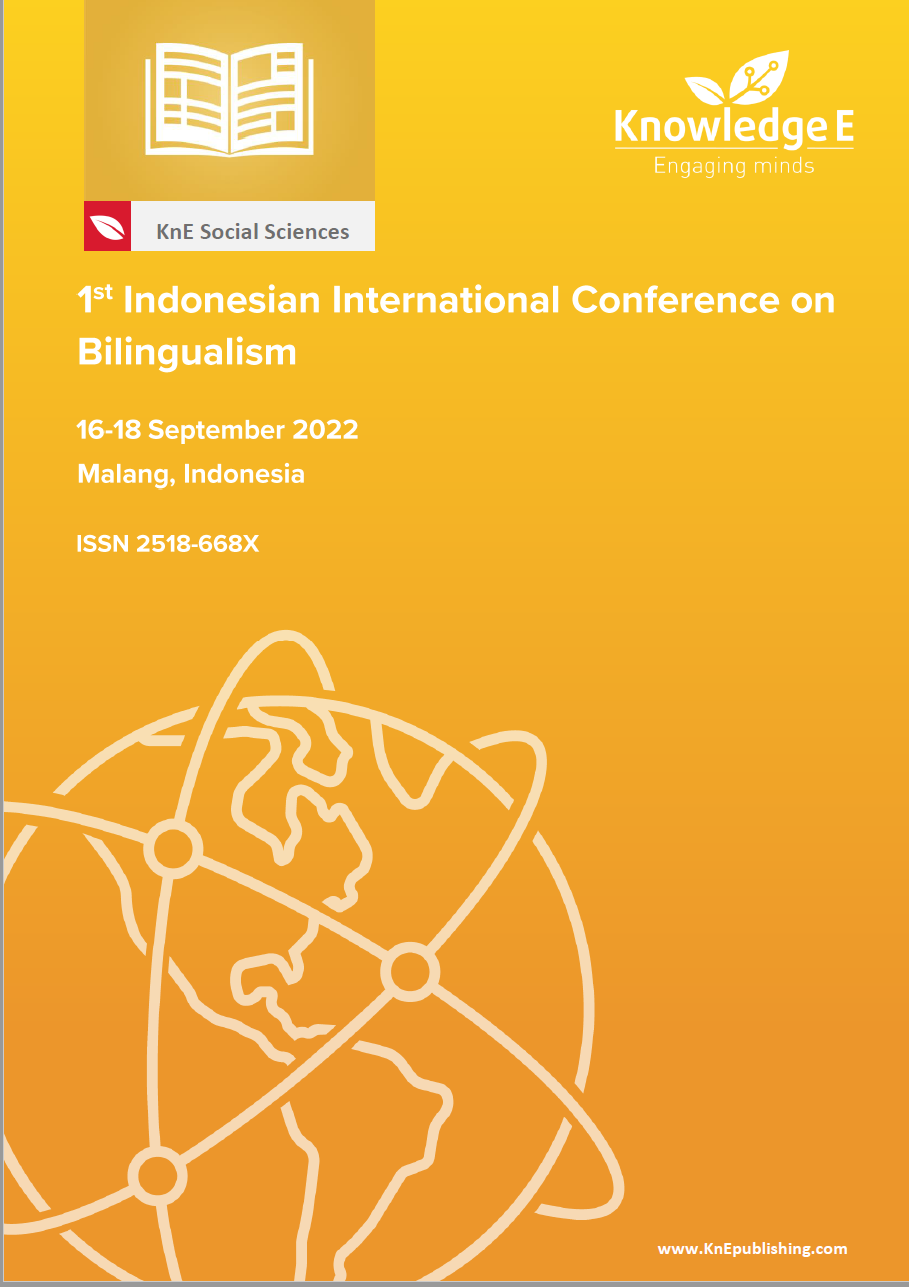African-American Vernacular English as Hip-Hop Artist Identity in Indonesian Rapper Ramengvrl's Songs
DOI:
https://doi.org/10.18502/kss.v8i7.13231Abstract
This study aimed to investigate and identify the grammatical features of African American Vernacular English (AAVE) used in the song lyrics of the Indonesian Rapper Ramengvrl’s album, Can’t Speak English, and understand the underlying reasons for this AAVE use by applying the language and society of sociolinguistics approach. The data was analyzed using Wolfram’s theory of classification of grammatical features of AAVE in Ramengvrl’s songs to elaborate on the purpose of its use. The data analyzed were qualitatively collected by closely and thoroughly listening to the songs and reading the transcribed lyrics. The results are as follows: Ramengvrl employs 8 out of 13 grammatical features of AAVE. Those are copula/auxiliary absence, specialized auxiliary, subject-verb agreement, negation, remote “been,” nominals, non-standard pronouns, and question formation. Furthermore, this AAVE use by Ramengvrl is because of (1) the influences of Hip-hop artists, (2) the authenticity of Hip-Hop culture, and (3) as an anti-language to represent herself.
Keywords: African-American Vernacular English, AAVE, hip-hop, identity
References
[2] Blanchard B. The social significance of rap & hip-hop culture. Ethics of Development in a Global Environment (EDGE), Poverty & Prejudice: Media and Race 1999. Available from http://hiphoparchive.org/sites/default/files/ the_social_significance_of_rap_hip_hop_culture.pdf
[3] Blommaert J. The sociolinguistics of globalization. Cambridge: Cambridge University Press; 2010. https://doi.org/10.1017/CBO9780511845307.
[4] Bucholtz M. Race and the re-embodied voice in Hollywood film. Lang Commun. 2011;31(3):255–65.
[5] Chalker S, Weiner E. The Oxford dictionary of English grammar. Oxford: Oxford University Press; 1998. https://doi.org/10.1093/acref/9780192800879.001.0001.
[6] Chesley P. You know what it is: learning words through listening to hip-hop. PLoS One. 2011;6(12):e28248.
[7] Cutler C. White hip-hoppers. Lang Linguist Compass. 2015;9(6):229–42.
[8] Eiswerth JP. (1995). Rap music as protest: A rhetorical analysis of Public Enemy’s lyrics. 1995. https://doi.org/10.25669/wzlr-izkm.
[9] Fascina C. The language of hip hop: A racial bridge? (Doctoral dissertation, Universitá Degli Studi Di Verona, Verona, Italy). 2014.Available from https://core.ac.uk/outputs/217566965
[10] Halliday MA, Hasan R. Cohesion in English. London: Routledge; 1976.
[11] Ista. Indonesia’s hip hop star Ramengvrl spills why she ‘Can’t Speak English.’ Eksentrika. 2020. Available from https://www.eksentrika.com/ramengvrl/
[12] Lewis MP. How many languages are there in the world? Languages: A very short introduction. Oxford: Oxford University Press; 2019. https://doi.org/10.1093/actrade/9780199590599.003.0002.
[13] Madame Rap. Ramengvrl: “I don’t believe in social conformity”. Available from https://madamerap.com/en/2021/01/26/ramengvrl-i-dont-believe-in-socialconformity- 2/
[14] Nguyen J, Ferguson GM. A Global Cypher: The role of hip hop in cultural identity construction and navigation for Southeast Asian American Youth. New Directions for child and adolescent development. 2019;164. https://doi.org/10.1002/cad.20279.
[15] Phillips H. Ramengvrl. Euphoria Magazine. 2021. Available from https://www.euphoriazine.com/blog/2021/01/interviews-ramengvrl/
[16] Pullum G. African American Vernacular English is not standard English with mistakes. In: Wheeler R, editor. The Workings of Language. Westport: Praeger Publishers; 1999.
[17] Ramengvrl. Can’t Speak English [Album]. United States: EMPIRE.
[18] Reyes A. Appropriation of African American slang by Asian American youth. J Sociolinguist. 2005;9(4):509–32.
[19] Reyes A. Language, Identity, and Stereotype among Southeast Asian American Youth: The Other Asian. New York: Routledge; 2017. https://doi.org/10.4324/9781315092027.
[20] Setiawan MA. An analysis of English grammar deviations in the 2016 song lyrics by African-American singers (Unpublished undergraduate thesis, Sanata Dharma University, Yogyakarta). 2018. Available from https://repository.usd.ac.id/17477/2/131214130_full.pdf
[21] Trudgill P. An introduction to language and society. 4th ed. London: Penguin Books; 2000.
[22] Wolfram W. The grammar of urban African American Vernacular. Kortmann, Schneider EW (Eds.), A handbook of varieties of English volume 2: Morphology and syntax. Berlin: Mouton De Gruyter. pp. 111–132.
[23] Wolfram W. African ? American English. In: Nelson CL, Proshina ZG, Davis DR, editors. The handbook of world Englishes. 2nd ed. Hoboken: John Wiley & Sons, Inc;; 2020. pp. 314–30., https://onlinelibrary.wiley.com/doi/10.1002/9781119147282.ch18

